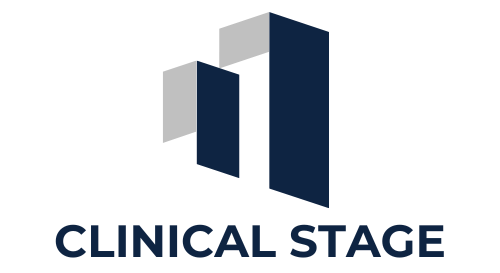Data Integrity and Compliance in Clinical Trials
In the realm of clinical trials, the significance of data integrity and compliance cannot be overstated. The success of clinical research hinges on the reliability and accuracy of data collected during the trials. Any compromise in data integrity can lead to erroneous conclusions, jeopardizing patient safety and potentially leading to the approval of ineffective or harmful treatments. Compliance with established regulatory standards ensures that the trials are conducted ethically and the data generated is credible and trustworthy.
The landscape of clinical trials is governed by a comprehensive framework of regulatory requirements and guidelines. These regulations are designed to protect participants, ensure the ethical conduct of research, and maintain the highest standards of data quality. Key regulatory bodies, such as the Food and Drug Administration (FDA) in the United States and the European Medicines Agency (EMA) in Europe, have established stringent guidelines that must be adhered to by researchers and sponsors. These guidelines cover various aspects of clinical trials, including data management, monitoring, and reporting, to uphold the integrity of the research process.
This blog aims to delve into the critical aspects of data integrity and compliance in clinical trials. We will explore the importance of maintaining data accuracy and the implications of non-compliance. The blog will provide an overview of the regulatory landscape, highlighting key requirements and guidelines that govern clinical research. Additionally, we will discuss best practices and strategies for ensuring data integrity and compliance, offering valuable insights for researchers, sponsors, and other stakeholders involved in clinical trials.
Understanding Data Integrity
Definition and Key Principles of Data Integrity
Data integrity refers to the accuracy, completeness, and reliability of data throughout its lifecycle. In the context of clinical trials, data integrity ensures that all data collected, processed, and reported is accurate, complete, and consistent. Key principles of data integrity include:
- Attributability: Data should be traceable to a specific individual or system responsible for its generation or modification.
- Legibility: Data should be readable and understandable, ensuring that it can be accurately interpreted.
- Contemporaneous: Data should be recorded at the time it is generated, ensuring timeliness and accuracy.
- Originality: The original data or a verified copy should be preserved.
- Accuracy: Data should be precise and free from errors or alterations.
These principles are collectively known by the acronym ALCOA (Attributable, Legible, Contemporaneous, Original, Accurate), which is often expanded to ALCOA+ to include Completeness, Consistency, Enduring, and Availability.
Historical Context and Evolution of Data Integrity Standards
The importance of data integrity in clinical research has evolved significantly over the years. Historically, the focus was primarily on ensuring the ethical treatment of participants and the validity of the research findings. However, with the advent of digital technologies and electronic data management systems, new challenges emerged, necessitating the development of more comprehensive data integrity standards.
In the 1990s, the FDA introduced regulations such as 21 CFR Part 11, which set forth criteria for the use of electronic records and electronic signatures, emphasizing the need for data accuracy and reliability. Similarly, the International Council for Harmonisation of Technical Requirements for Pharmaceuticals for Human Use (ICH) issued guidelines such as ICH E6(R2) Good Clinical Practice (GCP), which provide detailed requirements for data management and monitoring in clinical trials.
Over the years, these standards have been continuously refined to address emerging issues and technological advancements, ensuring that data integrity remains at the forefront of clinical research.
Common Data Integrity Issues in Clinical Trials
Despite stringent regulations and guidelines, data integrity issues can still arise in clinical trials. Some common challenges include:
- Data Fabrication and Falsification: Creating or altering data to present a false representation of the trial results.
- Inadequate Data Recording: Failing to document data accurately or in a timely manner, leading to gaps or inconsistencies.
- Data Manipulation: Adjusting or modifying data to achieve desired outcomes, which compromises the reliability of the research findings.
- Poor Data Management Practices: Inefficient data storage, lack of version control, and inadequate backup procedures can result in data loss or corruption.
- Insufficient Audit Trails: Lack of comprehensive audit trails that track data changes and user actions, making it difficult to verify data authenticity.
Addressing these issues requires a robust framework of policies, procedures, and technologies that promote a culture of data integrity and compliance in clinical research.
Regulatory Requirements for Data Integrity
Overview of Key Regulatory Bodies
Several regulatory bodies play a pivotal role in ensuring data integrity in clinical trials, each with its own set of guidelines and regulations:
- Food and Drug Administration (FDA): The FDA is responsible for protecting public health by ensuring the safety, efficacy, and security of human and veterinary drugs, biological products, and medical devices in the United States. The FDA enforces regulations such as 21 CFR Part 11, which outlines the criteria for electronic records and electronic signatures.
- European Medicines Agency (EMA): The EMA is tasked with the scientific evaluation, supervision, and safety monitoring of medicines in the European Union. The EMA's guidelines align with those of the International Council for Harmonisation (ICH) and focus on maintaining data integrity throughout the drug development process.
- International Council for Harmonisation of Technical Requirements for Pharmaceuticals for Human Use (ICH): The ICH brings together regulatory authorities and the pharmaceutical industry to discuss scientific and technical aspects of drug registration. The ICH E6(R2) Good Clinical Practice (GCP) guideline is a key document that outlines standards for the design, conduct, performance, monitoring, auditing, recording, analysis, and reporting of clinical trials.
Guidelines and Regulations Governing Data Integrity
21 CFR Part 11 (FDA)
21 CFR Part 11 establishes the FDA's requirements for electronic records and electronic signatures to ensure they are trustworthy, reliable, and equivalent to paper records. Key components include:
- Validation: Ensuring that electronic systems are designed to produce accurate and reliable results.
- Audit Trails: Implementing secure, computer-generated audit trails to record the date and time of operator entries and actions that create, modify, or delete electronic records.
- Record Retention: Maintaining electronic records for the required duration and ensuring their accessibility for FDA inspections.
- User Access Controls: Implementing security measures to ensure that only authorized individuals can access the electronic records.
ICH E6(R2) Good Clinical Practice (GCP)
The ICH E6(R2) GCP guideline provides a unified standard for the design, conduct, recording, and reporting of clinical trials. Key aspects related to data integrity include:
- Quality Management: Establishing a quality management system to ensure that clinical trials are conducted in compliance with GCP and regulatory requirements.
- Data Handling and Recordkeeping: Implementing procedures for accurate and complete data collection, processing, and storage, including maintaining a secure and traceable audit trail.
- Monitoring and Auditing: Conducting regular monitoring and auditing of clinical trial processes to verify data accuracy and compliance with regulatory standards.
Implications of Non-Compliance
Non-compliance with data integrity regulations can have severe consequences for clinical trials and the organizations conducting them:
- Regulatory Sanctions: Regulatory bodies such as the FDA and EMA can impose sanctions, including warning letters, fines, and suspension of clinical trials.
- Rejection of Trial Data: Data generated from non-compliant trials may be deemed unreliable, leading to the rejection of trial results and delaying or halting the approval process for new drugs or therapies.
- Legal and Financial Repercussions: Organizations may face legal action and financial penalties, which can damage their reputation and result in significant financial losses.
- Patient Safety Risks: Compromised data integrity can lead to incorrect conclusions about a drug's safety and efficacy, potentially putting patients at risk.
Ensuring compliance with data integrity regulations is essential for maintaining the credibility of clinical trials, protecting patient safety, and securing the approval of new medical treatments.
Best Practices for Ensuring Data Integrity
Implementing Robust Data Management Systems
A cornerstone of maintaining data integrity in clinical trials is the implementation of robust data management systems. These systems should be designed to support the accurate and reliable collection, processing, storage, and retrieval of clinical trial data. Key features of effective data management systems include:
- Data Validation: Ensuring that the system validates data entries to prevent errors and inconsistencies. This can be achieved through automated checks, such as range checks, consistency checks, and cross-validation with other data sources.
- Access Controls: Implementing stringent access controls to ensure that only authorized personnel can access, modify, or delete data. Role-based access control (RBAC) is an effective method for managing permissions based on the user’s role within the organization.
- System Security: Protecting the data management system from unauthorized access and cyber threats through encryption, firewalls, and regular security assessments.
Ensuring Accurate and Complete Data Collection
Accurate and complete data collection is fundamental to data integrity in clinical trials. Best practices for ensuring high-quality data collection include:
- Standard Operating Procedures (SOPs): Developing and adhering to SOPs for data collection to ensure consistency and standardization across all trial sites and personnel.
- Training and Education: Providing comprehensive training for all personnel involved in data collection to ensure they understand the importance of data integrity and are proficient in using data collection tools and methods.
- Real-time Data Entry: Encouraging real-time data entry to reduce the risk of errors and omissions. Electronic data capture (EDC) systems can facilitate real-time data entry and immediate validation.
- Source Data Verification: Implementing source data verification (SDV) processes to compare data entered into the trial database with the original source documents, ensuring accuracy and completeness.
Maintaining Audit Trails and Data Traceability
Maintaining comprehensive audit trails and ensuring data traceability are crucial for verifying the integrity of clinical trial data. Key practices include:
- Automated Audit Trails: Utilizing electronic systems that automatically generate audit trails, capturing all data entries, modifications, and deletions, along with the date, time, and user information. This ensures a transparent and traceable record of all data-related activities.
- Regular Audits and Reviews: Conducting regular audits and reviews of the audit trails to identify any discrepancies or unusual patterns that may indicate data manipulation or errors. This proactive approach helps in early detection and resolution of potential data integrity issues.
- Document Management: Implementing a robust document management system to securely store and manage all trial-related documents, including informed consent forms, source documents, and regulatory submissions. Proper document management ensures that all records are traceable and accessible for regulatory inspections and audits.
- Data Backup and Recovery: Establishing and regularly testing data backup and recovery procedures to protect against data loss due to system failures, cyber-attacks, or other unforeseen events. Ensuring that backup copies are stored securely and can be retrieved promptly is essential for maintaining data integrity.
By adhering to these best practices, clinical trial sponsors and researchers can ensure that their data management processes uphold the highest standards of integrity, ultimately contributing to the success and credibility of clinical research.
Role of Technology in Data Integrity
Electronic Data Capture (EDC) Systems and Their Benefits
Electronic Data Capture (EDC) systems have revolutionized the way data is collected, managed, and stored in clinical trials. These systems replace traditional paper-based methods with digital solutions, offering numerous benefits that enhance data integrity:
- Real-time Data Entry and Validation: EDC systems allow for immediate data entry and validation, reducing the risk of errors and ensuring that data is captured accurately and consistently.
- Enhanced Data Quality: Automated validation checks within EDC systems ensure that data entries meet predefined criteria, flagging any discrepancies or out-of-range values for further review.
- Improved Accessibility and Collaboration: EDC systems facilitate easy access to data for authorized personnel, promoting collaboration among researchers, sponsors, and regulatory authorities. This accessibility helps maintain transparency and data integrity throughout the trial.
- Efficient Monitoring and Reporting: EDC systems streamline the monitoring process by providing real-time access to data and generating comprehensive reports. This enables timely identification and resolution of data issues, ensuring the accuracy and completeness of the trial data.
Use of Blockchain for Secure and Transparent Data Management
Blockchain technology offers a promising solution for enhancing data integrity and security in clinical trials. By providing a decentralized and immutable ledger, blockchain ensures that data is securely recorded and transparently managed:
- Immutable Records: Once data is recorded on the blockchain, it cannot be altered or deleted. This immutability ensures the integrity of the data and prevents unauthorized modifications.
- Transparent and Traceable Data: Blockchain allows for transparent and traceable data management, where every transaction is recorded and visible to all authorized participants. This transparency fosters trust and accountability among stakeholders.
- Enhanced Security: Blockchain employs advanced cryptographic techniques to secure data, making it highly resistant to hacking and cyber-attacks. This ensures that sensitive clinical trial data remains protected.
- Streamlined Consent Management: Blockchain can be used to manage informed consent processes, ensuring that patient consent is accurately recorded and traceable throughout the trial. This enhances compliance with regulatory requirements and protects patient rights.
Advanced Analytics and AI for Data Verification and Validation
Advanced analytics and artificial intelligence (AI) technologies play a crucial role in enhancing data verification and validation processes in clinical trials. These technologies offer powerful tools for identifying data anomalies, ensuring data quality, and maintaining integrity:
- Automated Data Validation: AI-driven algorithms can automatically validate data entries by cross-referencing them with predefined rules and historical data patterns. This automation reduces the risk of human error and ensures consistent data quality.
- Anomaly Detection: Advanced analytics can identify unusual patterns or outliers in the data that may indicate potential issues such as data fabrication, fraud, or errors. By flagging these anomalies, researchers can investigate and address data integrity concerns promptly.
- Predictive Analytics: AI can leverage historical data to predict potential risks and issues in ongoing trials, allowing researchers to take proactive measures to ensure data integrity and compliance.
- Enhanced Data Monitoring: AI-powered monitoring tools can continuously analyze data in real-time, providing insights into data trends and potential integrity issues. This continuous monitoring helps maintain high data quality throughout the trial.
By leveraging these technologies, clinical trial sponsors and researchers can significantly enhance their data integrity practices, ensuring that the data generated is accurate, reliable, and trustworthy.
Data Compliance in Clinical Trials
Key Compliance Requirements and Standards
Ensuring data compliance in clinical trials involves adhering to various regulatory requirements and standards designed to maintain the integrity and credibility of the research. Key compliance requirements and standards include:
- Good Clinical Practice (GCP): GCP is an international ethical and scientific quality standard for designing, conducting, recording, and reporting clinical trials. Compliance with GCP ensures that the rights, safety, and well-being of trial participants are protected and that the clinical trial data are credible.
- 21 CFR Part 11: Issued by the FDA, this regulation sets forth criteria for electronic records and electronic signatures, ensuring they are reliable, trustworthy, and equivalent to paper records.
- International Council for Harmonisation (ICH) Guidelines: These guidelines provide a unified standard for clinical trial conduct and data management, including E6(R2) GCP, which focuses on ensuring data integrity and participant protection.
- General Data Protection Regulation (GDPR): For trials conducted in the European Union, compliance with GDPR is essential to protect personal data and privacy. It outlines requirements for data processing, storage, and transfer, ensuring participant data is handled responsibly.
Strategies for Achieving and Maintaining Compliance
Achieving and maintaining compliance in clinical trials requires a proactive approach, including the following strategies:
- Comprehensive Training: Ensure all personnel involved in the trial are thoroughly trained in regulatory requirements, standard operating procedures (SOPs), and data integrity principles. Continuous training and refresher courses help maintain awareness and adherence to compliance standards.
- Standard Operating Procedures (SOPs): Develop and implement SOPs for all aspects of the clinical trial, including data collection, management, and reporting. SOPs provide clear guidelines and ensure consistency across the trial.
- Robust Data Management Systems: Utilize advanced data management systems that support compliance with regulatory requirements. These systems should include features such as audit trails, user access controls, and automated validation checks.
- Regular Monitoring and Auditing: Conduct regular monitoring and auditing of trial processes and data to identify and address any compliance issues promptly. This helps ensure that the trial remains on track and adheres to regulatory standards.
- Quality Management Systems (QMS): Implement a QMS to systematically manage quality throughout the trial. This includes risk management, corrective and preventive actions (CAPA), and continuous improvement processes to address compliance gaps.
Role of Quality Assurance and Audits in Compliance
Quality assurance (QA) and audits play a critical role in maintaining compliance in clinical trials. They help ensure that all trial activities adhere to regulatory standards and that data integrity is preserved:
- Quality Assurance (QA) Activities: QA involves implementing systematic processes to monitor and evaluate the quality of trial activities. This includes routine checks, process evaluations, and compliance assessments to ensure adherence to SOPs and regulatory requirements.
- Internal Audits: Conducting regular internal audits allows organizations to review their compliance status and identify any areas of non-compliance or potential risks. Internal audits provide an opportunity to address issues before they escalate and ensure continuous improvement.
- External Audits and Inspections: Regulatory bodies such as the FDA and EMA may conduct external audits and inspections to verify compliance with standards and regulations. Being prepared for these audits by maintaining thorough and accurate documentation is essential for demonstrating compliance.
- CAPA (Corrective and Preventive Actions): Following audits, implementing CAPA is crucial for addressing any identified issues and preventing their recurrence. CAPA involves identifying root causes, developing corrective actions, and monitoring the effectiveness of these actions.
By prioritizing quality assurance and regular audits, clinical trial sponsors and researchers can maintain a high level of compliance, ensuring that their trials are conducted ethically, safely, and in accordance with regulatory standards.
Case Studies and Examples
Case Study 1: Ensuring Data Integrity in a Large-Scale Clinical Trial
In a large-scale clinical trial conducted by Notable Labs, ensuring data integrity was a top priority due to the significant number of participants and complex data points involved. The trial aimed to evaluate the efficacy of a novel cancer treatment across multiple sites.
Key Strategies Implemented:
- Comprehensive Training Programs: All personnel received extensive training on data collection protocols, regulatory requirements, and the use of electronic data capture (EDC) systems.
- Advanced EDC System: A robust EDC system with automated validation checks was implemented to ensure real-time data accuracy and consistency.
- Centralized Data Monitoring: A centralized data monitoring team continuously reviewed data entries, identified discrepancies, and initiated prompt corrective actions.
Outcomes:
- High Data Quality: The use of an advanced EDC system and continuous monitoring ensured that data was accurate, complete, and reliable.
- Regulatory Compliance: The trial adhered to all regulatory standards, resulting in a smooth approval process for the treatment.
- Improved Efficiency: The centralized monitoring approach allowed for efficient identification and resolution of data issues, minimizing delays in the trial timeline.
Case Study 2: Addressing Data Integrity Challenges in Multi-Center Trials
A multi-center trial conducted by a leading pharmaceutical company faced significant data integrity challenges due to the involvement of numerous sites and diverse data management practices.
Challenges Encountered:
- Inconsistent Data Collection: Variations in data collection methods across sites led to inconsistencies and potential data quality issues.
- Data Traceability: Ensuring data traceability and maintaining comprehensive audit trails was difficult due to decentralized data management.
Solutions Implemented:
- Standardized Protocols: The company developed standardized data collection protocols and provided training to ensure uniformity across all sites.
- Unified Data Management System: A unified data management system was deployed to centralize data collection and management, ensuring consistent data handling.
- Regular Audits and Monitoring: Frequent audits and monitoring were conducted to ensure compliance with standardized protocols and to identify any data discrepancies.
Outcomes:
- Improved Data Consistency: Standardized protocols and a unified data management system ensured consistent and accurate data collection across all sites.
- Enhanced Data Integrity: Regular audits and monitoring helped maintain data integrity and compliance with regulatory standards.
- Streamlined Processes: The centralized approach facilitated efficient data management and reduced the administrative burden on individual sites.
Case Study 3: Successful Implementation of Compliance Strategies
Notable Labs successfully implemented comprehensive compliance strategies in a clinical trial focused on evaluating a new treatment for a rare genetic disorder.
Key Compliance Strategies:
- Quality Management System (QMS): A robust QMS was established to manage quality throughout the trial, including risk management, corrective and preventive actions (CAPA), and continuous improvement processes.
- Electronic Informed Consent (eConsent): The use of eConsent ensured that patient consent was accurately recorded and traceable, enhancing compliance with regulatory requirements.
- Advanced Analytics for Data Verification: Advanced analytics and AI were employed to verify and validate data entries, identifying any anomalies or inconsistencies.
Outcomes:
- High Compliance Levels: The implementation of a QMS and eConsent ensured high levels of compliance with regulatory standards, protecting patient rights and data integrity.
- Accurate and Reliable Data: The use of advanced analytics for data verification resulted in accurate, reliable, and trustworthy data.
- Successful Trial Outcomes: The comprehensive compliance strategies contributed to the successful completion of the trial, leading to positive outcomes and furthering the development of the treatment.
These case studies illustrate the critical importance of data integrity and compliance in clinical trials. By implementing robust data management systems, standardized protocols, and advanced technologies, organizations like Notable Labs can ensure that their clinical trials adhere to the highest standards of quality and regulatory compliance, ultimately leading to successful and credible research outcomes.
Future Directions in Data Integrity and Compliance
Emerging Trends and Technologies in Data Integrity
As clinical research continues to evolve, several emerging trends and technologies are poised to enhance data integrity and compliance:
- Blockchain Technology: Blockchain’s decentralized and immutable ledger system offers a promising solution for ensuring data security, transparency, and traceability. By recording all data transactions on a blockchain, clinical trials can maintain an auditable and tamper-proof record, enhancing trust and accountability.
- Artificial Intelligence (AI) and Machine Learning (ML): AI and ML algorithms can analyze large datasets to identify patterns, detect anomalies, and predict potential issues, thereby improving data accuracy and integrity. These technologies can also automate data validation and verification processes, reducing human error and increasing efficiency.
- Internet of Things (IoT): IoT devices, such as wearable health monitors, can continuously collect and transmit patient data in real-time. This technology ensures accurate and up-to-date data collection, reducing the risk of data loss or manipulation.
- Cloud Computing: Cloud-based data management systems offer scalable, secure, and cost-effective solutions for storing and managing clinical trial data. These systems provide real-time access to data, facilitate collaboration among stakeholders, and ensure robust data backup and recovery capabilities.
- Decentralized Clinical Trials (DCTs): DCTs leverage digital technologies to conduct trials remotely, reducing the need for physical visits to trial sites. This approach can enhance patient recruitment and retention, improve data quality, and ensure timely data collection.
Evolving Regulatory Landscape and Its Impact on Data Management
The regulatory landscape for clinical trials is continuously evolving to keep pace with technological advancements and emerging challenges. Key developments include:
- Harmonization of Global Standards: Regulatory bodies are working towards harmonizing standards and guidelines to facilitate international collaboration and ensure consistent data integrity practices across borders. Initiatives like the International Council for Harmonisation (ICH) play a crucial role in this effort.
- Focus on Patient-Centric Approaches: Regulations are increasingly emphasizing patient-centric approaches, including the use of eConsent and remote monitoring technologies. These approaches aim to protect patient rights and enhance the overall trial experience while ensuring compliance with data integrity standards.
- Enhanced Cybersecurity Requirements: As cyber threats become more sophisticated, regulatory bodies are implementing stricter cybersecurity requirements to protect clinical trial data. These requirements include robust encryption, access controls, and regular security assessments.
- Adaptive and Flexible Regulations: Regulators are adopting more adaptive and flexible approaches to accommodate innovative trial designs and emerging technologies. This includes expedited review processes for breakthrough therapies and adaptive trial designs that allow for modifications based on interim data.
Future Challenges and Opportunities for Maintaining Data Integrity
While technological advancements offer significant opportunities for enhancing data integrity, they also present new challenges:
- Data Privacy and Security: Ensuring the privacy and security of patient data remains a critical challenge, particularly with the increasing use of digital and remote technologies. Organizations must implement stringent data protection measures to comply with regulations like GDPR and HIPAA.
- Integration of Diverse Data Sources: Clinical trials often involve data from multiple sources, including electronic health records (EHRs), wearable devices, and laboratory systems. Integrating and harmonizing these diverse data sources while maintaining data integrity is a complex task.
- Regulatory Compliance: Keeping pace with evolving regulatory requirements and ensuring ongoing compliance can be challenging. Organizations must stay informed about regulatory changes and implement robust compliance strategies to meet these requirements.
- Training and Education: As new technologies and methodologies emerge, continuous training and education for trial personnel are essential to ensure they understand and adhere to data integrity and compliance standards.
Opportunities
- Innovative Data Management Solutions: The development of innovative data management solutions, such as AI-driven analytics and blockchain technology, offers significant opportunities to enhance data integrity and streamline compliance processes.
- Collaborative Research Models: Collaborative research models that involve partnerships between academia, industry, and regulatory bodies can drive innovation in data integrity practices and improve compliance outcomes.
- Patient Engagement: Engaging patients in the trial process through digital tools and patient-centric approaches can enhance data accuracy, improve trial retention, and ensure compliance with ethical standards.
By embracing these emerging trends and technologies, and addressing the associated challenges, organizations like Notable Labs can continue to uphold the highest standards of data integrity and compliance in clinical trials. This will ultimately lead to more reliable and credible research outcomes, advancing the development of new and effective treatments for patients.
Recap of the importance of data integrity and compliance
Data integrity and compliance are fundamental pillars of clinical trials, ensuring that the data collected is accurate, reliable, and trustworthy. The credibility of clinical research relies on the meticulous adherence to regulatory standards and best practices, safeguarding patient safety and the validity of trial outcomes. Key elements such as robust data management systems, standardized protocols, comprehensive training, and continuous monitoring are crucial in maintaining data integrity and achieving compliance. Case studies from Notable Labs and other organizations illustrate the practical application of these principles, demonstrating successful strategies for overcoming data integrity challenges and ensuring regulatory adherence.
The future of data management in clinical trials is poised for significant transformation driven by technological advancements and evolving regulatory landscapes. Emerging technologies such as blockchain, artificial intelligence, and the Internet of Things are set to revolutionize data collection, management, and verification processes. These innovations promise enhanced data accuracy, security, and traceability, leading to more efficient and credible clinical research.
As the regulatory environment continues to adapt to these advancements, organizations must remain agile, embracing adaptive and patient-centric approaches to maintain compliance. The integration of diverse data sources and the implementation of sophisticated data analytics will become increasingly vital in managing the growing complexity of clinical trials.
Collaboration between industry, academia, and regulatory bodies will be essential in driving innovation and establishing harmonized global standards. By fostering a culture of continuous improvement, education, and proactive compliance, organizations can navigate future challenges and seize opportunities to advance clinical research.
Ultimately, the commitment to data integrity and compliance will not only enhance the credibility and success of clinical trials but also accelerate the development of new treatments, bringing significant benefits to patients worldwide. As we look to the future, the ongoing evolution of data management practices will play a pivotal role in shaping the next generation of clinical research, ensuring it remains robust, ethical, and impactful.










